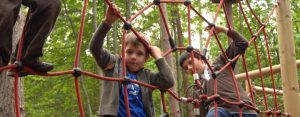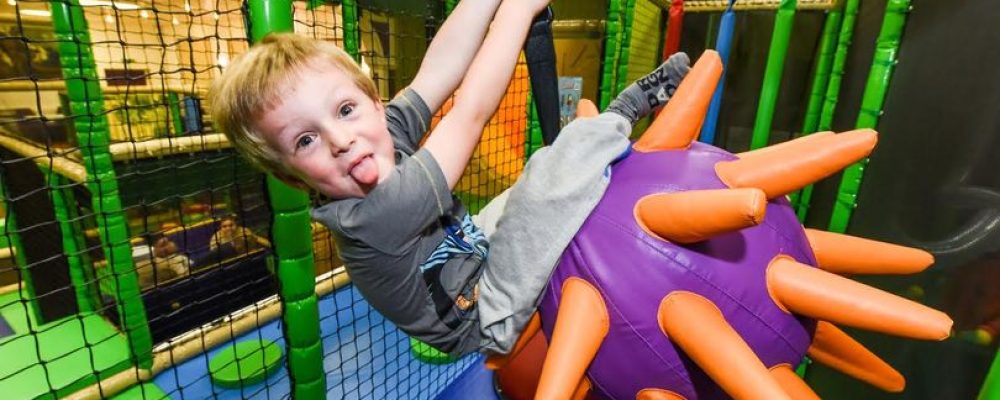The Incredible Benefits of Playgrounds in Children’s Development
The realm of play and playgrounds for children is constantly evolving along with our technology and our knowledge of how children develop. Over the years, it has become more and more apparent that giving children ample time to play and targeting multiple areas of development is vital in ensuring that a child will grow up to be a well-rounded, well-adjusted individual.
Armed with this knowledge, new toys, new school policies and curriculums, and new digital applications are constantly being developed in order to provide different kinds of play, as well as to accommodate children’s need for multifaceted development.
In the face of the continuous evolution of the realm of play, one thing remains constant: bringing a child to a playground to play with other children is essential and incredibly beneficial.
Playgrounds simultaneously target multiple areas of learning in children. The development of a child has roughly 5 dimensions: psychological, moral, biological, social, and cognitive. Playgrounds help children grow in a healthy manner.
All these areas need to be stimulated, and combining different toys or activities during play is ideal. Making for a well-rounded child.
Bringing a child to a playground is an excellent way of exposing a child to different play options; a well-designed playground combines multiple unique components and brings children of all races, abilities, backgrounds, genders, and ages together.
Biological or Physical Development
Bringing a child to a playground encourages them to run, jump, climb, and interact with its different modules (slides, swings, ladders, etc.) Being outdoors and trying out each of a playground’s sections is great cardiovascular exercise for children, and playing like this regularly is very valuable to their general health. It improves heart and lung function, increases blood circulation, builds stronger muscles, and significantly lowers their chances of being overweight.
A report from the Surgeon General from January 2010 revealed that, in the United States, one in every three children is overweight or obese. Unfortunately, this statistic is not surprising considering the ever-increasing accessibility of play activities that do not require physical exertion, such as computer games, console games, and cellphone applications. While these forms of play are not entirely detrimental (they can greatly sharpen a child’s cognitive skills and hand-eye coordination), children who are engrossed with these activities exclusively miss out on chances to be physically active and healthy.
During playground time, a child’s coordination, gross and fine motor skills, sense of balance, and flexibility are greatly sharpened; these unique opportunities might not be available to children with their toys and games at home.

Social or Interpersonal Development
Modules like platforms, bridges, or tunnels in a playground give children spaces to talk to each other and make friends. Frequent interaction with others in such a setting helps children learn different social skills; these include verbal and nonverbal communication, cultural norms, and social cues. Playing with each other also lets children practice problem-solving and conflict resolution. Time on the playground fosters in children a sense of neighborliness and cooperation that often transcends dividers like economic status, race, or gender; this is ultimately beneficial in their eventual acclimation to their community.
In conjunction with a peaceful and loving home environment, learning social skills with peers in a playground setting is advantageous in making sure that they know how to build healthy relationships in adolescence and adulthood.
Psychological or Emotional Development
Playgrounds give children a platform to improve their confidence and their self-esteem. Playground units like monkey bars or high bridges present a challenge to children. Overcoming their fears and getting through these challenges imbues them with a sense of accomplishment.
Playgrounds also encourage children to pretend play. Pretend play allows for them to open up their minds. Let things flow freely. All them to explore the world around them and from afar. Kids in all cultures have so much to bring to the adult world. They provide them with different props and an array of spaces like platforms or tunnels. The process of pretend play flexes children’s sense of imagination. This allows them to express themselves and gives them a chance to experiment with different emotions. It also nurtures in them a strong sense of self when they create characters for their pretend scenarios. And, it enables them to sample different beliefs and lets them figure out their personal preferences. Because pretend play taps into a child’s complex emotional needs. It also serves as great therapy for children wanting to release emotions from trauma.
Moral Development
Interacting with other children in a playground teaches a child values like patience, cooperation, respect for their peers, etc. For example, having to form a queue to try the slide, or taking turns on the swing teaches children about self-control. We often learn of these values for the first time upon playing with other children, when we find ourselves in situations where we have to make compromises and take into consideration others’ needs. Playgrounds are rife with such situations.
A child’s moral development is best cultivated in playgrounds that are designed to be inclusive and accommodating to all children, including those who are differently-abled. Research has shown that children subconsciously assign “value” to their playmates. They view other children who are highly participative in play activities as “valuable”. And these “valuable” playmates tend to be the ones they will choose to play with. A playground with modules that are not welcoming to differently-abled children. This may not give them an opportunity to play as much. As a result, they may experience exclusion because of the low “value” assigned to them by the other children.
Playground Surfaces
Bringing children to an inclusive playground, with surfaces and modules designed for differently-abled children, teaches them about the importance of equality. Play is a great equalizer; it is enjoyed by children of all backgrounds and abilities. A playground that is hospitable to all kinds of children. It actively demonstrates these important values and gives each of its young users a chance to shine.
Children are an investment into our future. Playing with them. Laughing with them and just having fun helps with so many things in their lives. Remember they are growing little people with feelings, energy and self esteem. If there is one thing we can give these kids it is our time. Take the time to talk with them. Play with your children. The time goes by so very fast.
Cognitive Development
Many new playground designs are beginning to include modular elements that target a child’s cognitive development and skills in logic. A set of building blocks in a playground. Playground modules with assorted textures and tactile stimuli, or even a unit that lets children play tic tac toe flexes their spatial reasoning and building skills. Sharpening these skills in basic logic serves as a gateway for children to learn even more complex cognitive skills like mathematics and puzzle solving.
Children are one of our most precious assets. Knowing how to help them grow and develop into amazing adults is our job as adults. Playgrounds help in this manner in so many ways as we have pointed out. Go and take your child to the playground. Perhaps you might even enjoy some time with them. Children have amazing imaginations and develop through play.
In the face of all the benefits of playground time, we just discuss. So, when is the next time you’ll be bringing your child to a playground?

